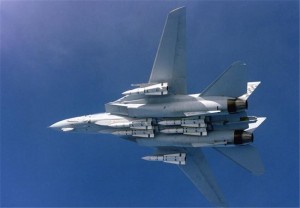 New York, Feb 22, IRNA -- US aerospace companies are seeking permission to sell airliner parts to Iran for the first time in three decades, in a key test of the temporary relief on sanctions given under talks to curtail Iran�s nuclear activities.
New York, Feb 22, IRNA -- US aerospace companies are seeking permission to sell airliner parts to Iran for the first time in three decades, in a key test of the temporary relief on sanctions given under talks to curtail Iran�s nuclear activities.At least two leading manufacturers, Boeing and engine maker General Electric (GE), have applied for export licences in a six-month window agreed by Iran and six world powers in November, industry officials and other sources familiar with the matter said.
If approved, the sales would be the first acknowledged dealings between US aerospace companies and Iran since the 1979 US hostage crisis led to sanctions that were later broadened during the dispute over Iran�s nuclear activities.
Rival European groups, however, have been slower to react because of doubts over the status of the European Union�s complex Iranian sanctions legislation and fears of a backlash from the United States, which had warned them not to rush into dealings with Iran.
Other potential obstacles include uncertainty over terms and conditions for exports and the difficulty of finding banks willing to handle the transactions, which must be completed by July 20.
A General Electric spokesman said his company had been asking since 2004 for permission to provide parts and maintenance for engines for safety reasons, without profiting from the scheme. GE, the world�s largest maker of jet engines by sales, refiled its request after the sanctions relief came into force, he added.
�We don�t want to make a penny on it. It�s entirely for flight safety,� Rick Kennedy said, adding that GE would donate any proceeds to charity.
A source familiar with the matter said that Boeing, the world�s biggest manufacturer of passenger jets, had also filed a request for permission to export parts to Iran.
Boeing declined to comment, referring questions to the US State Department, which in turn referred queries to the US Treasury. A spokeswoman for the Treasury Department, which enforces international sanctions, declined to comment on specific licence requests or applications.
Iran agreed in November to curtail its nuclear activities for six months from Jan. 20 in exchange for sanctions relief from Britain, China, France, Germany, Russia and the United States. The deal provides for the sale of parts to flag carrier Iranair, the fleet of which includes vintage Boeing and Airbus jetliners delivered as long ago as 1978.
Joel Johnson, an analyst with Virginia-based Teal Group, said that US officials viewed the sale of spare aircraft parts as a powerful carrot for Iran, which for decades has relied on parts obtained on the black market or copied locally.
He said the move could also help American companies to put themselves in a position to benefit if a broader softening of sanctions is agreed.
�It allows some US companies to get a foot in the door and restore relations that they have not had for over 20 years,� Johnson said.
A senior Iranian official told Reuters in November that Iran could require between 250 and 400 jets if and when sanctions are lifted completely.
Iran says the sanctions have prevented it from renewing its fleet, forcing it to use sub-standard Russian aircraft and to patch up jets that have long since exceeded their normal years of service.
Since 1990 it has had more than 200 accidents, causing more than 2,000 deaths, according to official news agency IRNA.
Negotiations aimed at reaching a final settlement in the dispute over Tehran�s nuclear programme resumed this week in Vienna, where the six powers said they had made a �good start�.
Though the countries are negotiating as one bloc, the temporary scheme under which aircraft parts can be exported has exposed differences in the way sanctions are handled, which could delay any benefits for European firms, trade lawyers say. The US ban on sales of aircraft parts to Iran predates the international tensions over Iran�s nuclear activities and was relaxed in a ruling that came into force on January 20.
By IRNA
The Iran Project is not responsible for the content of quoted articles.










